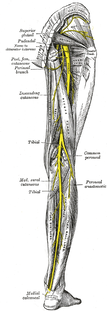 (By Dr. Grace Rollins, DAc) As acupuncturists, pain from sciatic nerve irritation is one of the most common, and urgent, complaints that we see. Cases can vary from the acute entrapment-- caused by muscle spasms, misalignment, or a bulging disc-- to the very chronic and intractable. We often work with cases of sciatica that have been resistant to multiple steroid injections, medications, even surgical interventions. How can acupuncture help in these cases? Certainly, acupuncture and related techniques like cupping, moxibustion and gua sha can assist in relaxing tense muscles and fascia and restoring proper structural alignment. Acupuncture also stimulates the release of various neuropeptides and cytokines that can attenuate the body's pain perception. Acupuncture even recruits the top-down mediation of pain (the way the brain images and prioritizes pain signals from the periphery). In addition, acupuncture has the unique ability to restore blood flow to nerve tissue, and promote the correct signaling of nerves. In these cases, moxibustion (herbal heat therapy) and electro-acupuncture can be an extremely helpful addition to manual acupuncture.
0 Comments
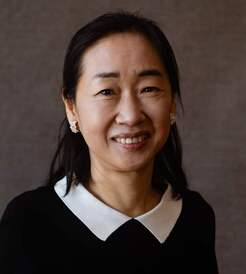 (By Misook Lee, LAc) Aging starts with our appearance gradually changing: tiny wrinkles in the face, thinning hair, and decline in muscle mass. Some can have pain issues such as joint problems, muscle damage and all sorts of immune-related diseases. Others have chronic metabolic issues such as diabetes, high blood pressure, and arteriosclerosis. Others suffer from chronic fatigue, lethargy, and depression. Cognitive functions may also decline, and at least some memory loss and slowing of processing speed are very common. Although all these changes are a natural part of aging, we can delay the progress of deterioration, prevent the severity of symptoms, and maintain a healthy condition through the use of therapies that enhance our natural health such as acupuncture and herbal medicine. 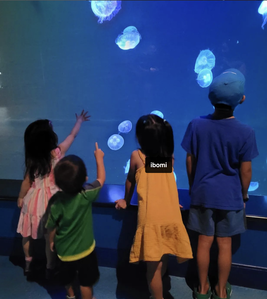 (By Suzie Lee Tran, MS, LAc) “Honey, can you please call my phone? I lost it… again…” Thankfully, it wasn’t on silent mode and I was able to find my phone… again. I was just so tired of losing my phone every single day. Our phones connect us to the outside world. They have become these 10-in-1 handheld devices; they’re our computer, phone, notepad, messaging center, memory keeper of photos and videos, etc. We carry them with us everywhere. Anyone can reach us at any time if we allow them to. “You just need to pay attention to where you put things,” my husband reminded me. It wasn’t so much as an “I told you so,” and it didn’t irritate me; but that word “attention” stuck with me. The last time it stuck with me was when I was in acupuncture school and one of my mentors did an entire lecture on “attention and intention.” “Attention and intention are the most powerful tools you can use as an acupuncturist. The attention you give your clients and the intention you set when you practice can take you to a higher level of consciousness than following a point prescription. You will learn a lot here- point location, theory, how to use needles and cups and all the other modalities we use. But it’s up to you to develop yourself so that you can give the attention your clients deserve and practice setting intentions every time you treat someone.” Whoa, that was heavy. Not only did I have to study and practice for over 3.5 years, but I had to work on myself? So, on top of reading, writing, and needling, I had to practice tai chi or Qigong or yoga or meditation or all of the above so I could learn how to focus, stay in the present, protect my energy and set intentions for healing sessions? I was already tired just thinking about it. Fast forward to losing my phone-- I had lost sight of what I needed to do. 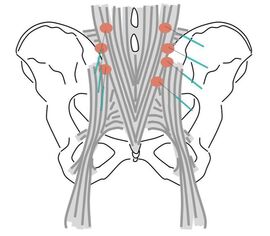 (By Dr. Grace Rollins, DAc) Due to its robust evidence base, acupuncture is recommended by the American College of Physicians as a first-line treatment for chronic low back pain. Acupuncture is one of the best non-drug treatments for pain available-- but why? Short answer: Acupuncture harnesses your body's own multi-leveled ability to regulate pain. 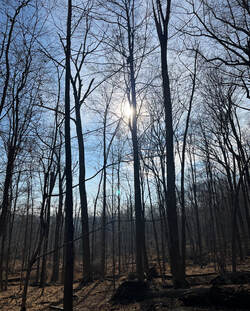 In addition to being the uniquely stressful holiday season, the next few weeks mark the darkest, most Yin time of year. Seasonal Affective Disorder (SAD) is known to be closely associated with reduced exposure to daylight, so as we near winter solstice on Dec 21, it's really time to keep an eye on how you're feeling. Here are a few of our favorite tips to elevate your mood and fend off the SAD--while also keeping your sanity during the holidays! 1. Get outside, daily No indoor light can come close to the intensity of lumens you are exposed to when outdoors, even on an overcast day. Aim for at least 30 minutes per day of outside time during the daylight hours. It's fine to break this up in to a few short walks, doing exercise or chores outside. If 30 minutes feels too hard to fit in your day, start with a few minutes, and see if you can increase from there. Any light exposure you can get will help fend off the SAD. Cold out? Just pile on those mittens and earmuffs, and embrace the season! 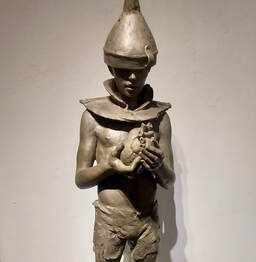 "The Little Tin Man," 2021, by Coderch & Malavia "The Little Tin Man," 2021, by Coderch & Malavia (By Paolo Propato, LAc) In the clinic lately, I have been seeing more and more patients with depression. This is an issue that many people I love suffer from while those around them never even know. Everyone feels sadness from time to time. It is a natural and useful emotion when needed. But sometimes sadness or a low mood may linger and begin to interfere with our daily lives. Some become accustomed, and believe this is just the way it has to be. Symptoms include: loss of interest in activities that used to be pleasurable; problems falling asleep, disrupted sleep, or sleeping too much; eating too little or eating too much; feeling tired or fatigued; inability to focus; feeling easily agitated or irritated; feelings of guilt or worthlessness; thoughts of suicide, or thinking more about death. Patients suffering from symptoms of depression many times will also come in with digestive issues, headaches and vague pains. Sometimes these symptoms are the motivation for the acupuncture visits, but during treatment we find that these symptoms are a part of “masked” depression. This is a state of depression that usually has physical symptoms, while the component of emotions and mood is hidden. Eastern medicine examines the health of the physical and mental body from the quality and movement of the blood and qi. In Chinese, depression is called yu zheng which also translates as “constraint.” Internal “constraint” may stem from emotional factors. Many patients can link a specific experience or stressor in their lives, like a stressful relationship or death of a loved one, to the pathology of yu zheng. 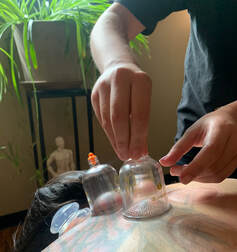 (By Geordan Kania, LMT) You may have heard the words "cupping therapy," and perhaps even seen the marks that are left behind after a session, but what is cupping therapy really? Cupping is an ancient technique that has been used by many different cultures around the globe for thousands of years. In history, animal horns, bamboo, clay, glass, and metal have all been used to create some form of what we call a cup. (Today we use glass or plastic.) Cups are applied to the skin and suction is created inside of the cup, using a variety of methods such as oral suction (in ancient times), fire, or a manual pump. This suction forms a vacuum inside of the cup drawing the skin and underlying tissues upward. This vacuum encourages the separation of tissue that is "stuck," fused, or otherwise tense. While the tissues are separated from the suction, vasodilation (widening of blood vessels) occurs offering hydration and nutrients to these areas that would otherwise usually be restricted. 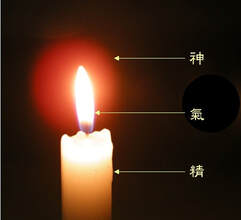 (By Misook Lee, LAc.) A big difference between Eastern medicine and Western medicine is how to view the mind. In modern Western medicine, the mental and emotional ailments are treated by focusing mostly on the brain. However, traditional Eastern medicine uses a more holistic approach in treating mental and emotional ailments. In traditional Eastern Medicine theory, there are three basic elements in our life, which are Jing (精), Qi (氣) and Shen (神). Jing is the essence of the body and a very refined material; Qi can be the flow of energy; and Shen is corresponding to the spirit or mind. If I compare life to a candle, Jing is the substance of the candle, Qi is the flame and Shen is the light coming out of the flame of the candle. Because Jing, Qi and Shen are closely integrated, we need to view and treat all three aspects of our life. I experienced the connection between the three elements through the struggles of my life. When I was a young mother. I could not adjust well to the sudden changes of pregnancy, childbirth, and parenting. Some people take to their roles as mother and housewives very naturally. In my case, it was not so. I was depressed and sick all the time. It was hard for me to live day by day and I felt lost at that time. I never thought it was depression, though. 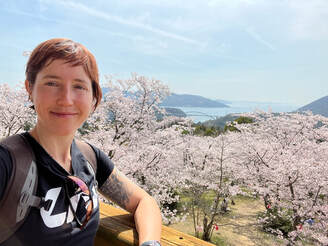 The author on a recent trip to Japan The author on a recent trip to Japan (By Grace Rollins, MS, LAc) Antibiotics may have saved my life as an infant, when I had an infection in my neck that necessitated surgery. After that, probably much like many of you, I was on antibiotics as a kid every year, if not multiple times, for strep throat or bronchitis. And in a way that had nothing to do with fighting infections or saving my life, I also consumed antibiotics as part of my conventional American, fast-food diet, since approximately 70% of our antibiotics are used to accelerate growth in livestock and end up contaminating our meat and farmed fish. Sadly, the unnecessary antibiotic saga continued: while in college, I contracted a serious gastrointestinal infection while traveling abroad, and underwent a course of a powerful antibiotic called Cipro (part of a class known for major side effects and now partially banned in Europe). After it didn’t help my infection symptoms at all, the doctor decided to run a simple stool test that determined I had a parasitic protozoan called Giardia, not a bacterium susceptible to antibiotics (a proper, if belated, diagnosis that finally led to a proper treatment). As with many young people who grow up on a diet of antibiotics (and are exposed to innumerable other microbiome disruptors, like pesticides, herbicides and processed food additives), I was plagued with allergies and acne from the time of puberty well into adulthood. Becoming a vegan in those college years opened my eyes to a lot of new foods, but since I was still also eating a lot of junk, including artificial sweeteners, sugar and conventional grains laced with pesticides, my symptoms stayed pretty much the same. The allergies and congestion were just a way of life for me. But eventually, sick of drenching my face with benzoyl peroxide every night, after I got out of college I finally saw a dermatologist about the acne. The doctor immediately prescribed an oral and a topical antibiotic for me to use daily... indefinitely.  Age 12 in Jakarta. Age 12 in Jakarta. (By Grace Rollins, MS, LAc) It's hard to just blurt it out there, for reasons I'll explain. But here goes. I was once significantly overweight. The backstory is an all-too-common one. In short, I grew up in the American food milieu. In the 80s, this meant sweet boxed cereal and skim milk, packaged and frozen meals loaded with sugar, starch and preservatives, refined and processed bread, chips and snacks, candy and cookies, and tons of soda. Not to mention fast food. Those all too potent sensory memories abound from McDonald’s, Pizza Hut, Taco Bell, Domino’s Pizza, Little Ceaser’s, KFC, Dairy Queen. Wendy’s. Chuck-E-Cheese. (Thinking back, we sure ate a lot of crap pizza.) Out of nowhere, my family moved to Southeast Asia for a year when I should have been in sixth grade. 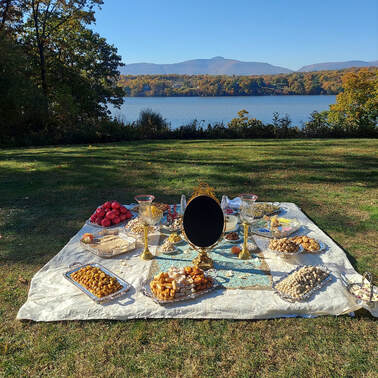 (By Paolo Propato, LAc) A few weeks ago I attended a wedding in the Hudson Valley. The groom was of Jewish descent and the bride was of Iranian descent. The couple stood under the chuppah (a Jewish wedding canopy) as the officiant spoke about the union that was taking place. The couple then walked over to the sofreh (Iranian altar) as a few women grinded sticks of sugar over the couple. Each of the culturally diverse rituals had the same elements: respect and acknowledgment of their ancestors, the union of the present, and sending energy of love and abundance for their future. Everyone watched the rituals quietly until the couple kissed and was pronounced husband and wife. At that point, conversation and laughter began, which turned into dancing, smiles and more laughter. The sun and earth went through their own ritual as the light began to fade. The color that was created from the leaves pulled me away from the party to an empty spot under a tree. The sound of fun and artificial lights became the background. I began to think of the faces of excitement on the bride and groom as they were pronounced a married couple for the first time. It made me question: are the rituals I engage in effective, or have they just become habits? 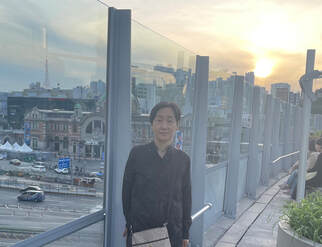 (By Misook Lee, LAc) When I was a young mother of two sons, I always struggled with some illness. One day, I read a book titled What is Yin Yang? written by traditional Chinese Medicine (TCM) doctors. It was an eye-opening moment for me and I think it was when my medicine studies first began. The word Yin-Yang consists of the two Chinese characters Yin 陰 and Yang 陽. The character Yin represents the shade of a hill which is a hidden, dark and cool condition. The other character Yang indicates the sunny side of a hill which is an open, bright, and warm space. However, the concept of the Yin and Yang is not about static and opposite contrasts, but it is focused on the dynamics of a changing condition as time passes. In the morning, the sun rises in the East and the sunny side of the hill is the East side. However, in the evening, the East side of the hill becomes shady and the sun shines on the West side. As a result, the Yin and Yang side of the hill is constantly changing over time. The hill is always there, but the phases of the hill can be changeable. This is the basis of the traditional East Asian viewpoint of the world: everything is constantly changing. 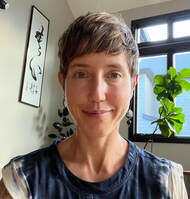 I wanted to take a moment to reflect on the milestone we have hit this year as a practice, and remark on its significance to me personally. I have a natural inclination to keep my cards close to my chest, but I have come to realize that in my current role, to share a little of my own trajectory can sometimes serve as a source of inspiration. To put it bluntly, I come out of a difficult, unhealthy family background. My parents had a bitter divorce when I was six, and my siblings and I suffered from extensive psychological abuse as small children. My father voluntarily ceased to be part of my life from the time I was eleven. From that time on, I grew up amid financial instability, substance abuse, and increasingly, the mental and physical illness of my family members. Eventually, those closest to me were all in significant distress and either self-medicating or on medication. The wave of un-wellness threatened to pull me under, too. 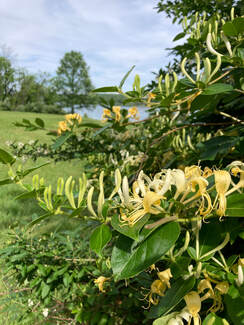 (By Paolo Propato, LAc) Those who read my blog posts know that they are mostly about self reflection. During the past couple of years I have been immersed in training for my certification in Chinese herbology, which has given me lots to reflect on. A few years ago I planted a honeysuckle vine in my back yard. People told me it was a stupid idea due to its invasive nature but there is something about honeysuckles that makes me smile. Especially on a clear night with a bright moon, with the window open, when out of nowhere her fragrance fills the kitchen and everyone instantly smiles and someone says, “Did you smell that?” It's like a friend that shows up at your front door and you're grateful that they took the time to stop by. I don't pick the honeysuckle, although it is a very useful medicinal in East Asian medicine that is great for viral infections, fevers, skin problems and other issues. Below the honeysuckle, my wife planted chamomile, which this year finally started to take. My son and I often go out and pick the tender blossoms in the mornings. As I sit out there at night to look up at the stars and catch a whiff of the flowers, I think about the relationship between the honeysuckle above, and the chamomile below. 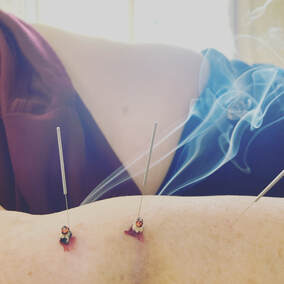 Summer is a time of increased activity-- and we really hope you're getting out there and making the most of it! Being active is the best way to stay healthy, young and happy. With increased activity comes the occasional trauma or repetitive strain. Many are familiar with the classic RICE protocol for injuries-- "rest, ice, compression and elevation." Often we observe patients instead practicing the "Double I" protocol-- "ice and ibuprofin." But is this truly the fastest way to get back in gear? You may have heard us gently preach about ibuprofin and other NSAIDs once or twice before. The side effects of this class of drugs are not to be accepted casually: bleeding ulcers, tinnitus and hearing loss, and kidney damage are only the major ones. Some 100,000 people are hospitalized annually for NSAID-provoked GI issues alone, and some 16,500 of these patients actually die. On a sub-clinical level, these drugs have been shown to cause micro-lesions in the GI tract, contributing to such disorders as leaky gut, IBS and systemic inflammation. Even worse, NSAIDs may not speed the healing of your injury at all. By interrupting your natural inflammatory response to tissue damage, which plays an important role in the early phases of healing, they may actually impede the normal arc of injury recovery. |
AuthorWrite something about yourself. No need to be fancy, just an overview. Archives
April 2024
Categories |
 RSS Feed
RSS Feed